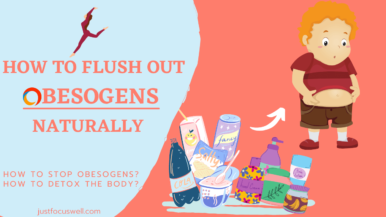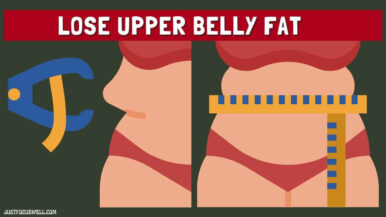Transform Your Gut Health in 30 Days: A Step-by-Step Guide

Are you battling bloating, indigestion, or other gut issues? You are not alone in this. Impaired gut health is affecting millions of people worldwide. Transform Your Gut Health in 30 Days: A Step-by-Step Guide.
And can say goodbye to all those stomach problems forever. You’ll learn how to nourish your gut with the right foods, supplements, and lifestyle changes.
Table of Contents
Why Gut Health Is Important

Your gut health plays an important role in overall health. A healthy gut not only aids in digestion and absorption of nutrients. It also helps support your immune system and mental health.
Unfortunately, our modern diet and lifestyle easily upset the delicate balance of bacteria in our gut. This leads to bloating, poor digestion, and other health problems.
MUST READ – How To Get Free 10 Foods For Glowing Skin [You Must Know]
If you want to fix your gut health. Then you are at the right place. In this article, we’ll show you step-by-step how to plan a healthy gut. Which you can follow for 30 days to improve your gut health. By then you would have developed such habits. Which will keep your stomach healthy right for a long time.
MUST READ- 11 Affordable Weight Loss Tips That Can Improve Your Budget
How To Assess Your Current Gut Health

Before starting your gut health transformation journey, it is very important to assess your current gut health. After all, you can’t make that correction. what you don’t know Whether improvement is needed or not.
MUST READ- Aloe Vera Cleanse Recipes |How To Use It For Better Detox
So poor gut health can be identified by certain signs and symptoms. All these symptoms matter from person to person.
MUST READ- 10 Best Home Remedies To Reduce ESR In Blood (Full Review)
But it is important to pay attention to some general things here. for example
Bloating, gas, or abdominal pain.
Constipation or diarrhea
Feeling tired or low energy.
Brain fog or difficulty concentrating.
Skin issues, such as acne or eczema.
Having a food intolerance or sensitivity.
Mood swings or anxiety.
If you are feeling any of these symptoms. So there is a possibility. that you need to improve your gut health. But don’t worry. This 30-day Guide is for them.
Self-Assessment Questionnaire To Determine Current Gut Health

You can take a self-assessment questionnaire to get a more specific idea of your current gut health. This questionnaire will help you identify those areas. Where you will need to focus more during the 30-day guide Here are some questions. Which you can find in the Self-Assessment Questionnaire.
MUST READ- The Miracle of Medina Herb: Transforming Your Health Naturally
How often do you experience flatulence or discomfort in your stomach after eating?
Do you experience irregular bowel movements or constipation?
How often do you consume sugar or processed foods?
Do you experience any food intolerances or sensitivities?
Do you regularly feel stressed or anxious?
How often do you engage in physical activity?
Based on the answers to these questions, you can get a fair idea. Where do you stand with your gut health?
How To Identify Triggers And Make Dietary Changes

The first thing you need to know in order to improve your gut health is: How to identify a food trigger or intolerance. and how to end it. that is causing inflammation or irritation in your intestine. Common triggers can be gluten, dairy, sugar, processed foods, and alcohol. Then determine this. Are any of these foods causing problems for you?
An elimination diet consists of a set period of time (usually around 2-4 weeks). This involves removing common trigger foods from your diet. And then gradually they have to be added back to your diet one at a time. so that it can be seen. whether they are still causing any symptoms or not. This helps you to identify it. Which foods are causing problems? By which you will know what you should not eat.
How to start a gut-friendly diet plan
Once you have identified a trigger food. So start making dietary changes to improve your gut health. Your gut-friendly diet plan should include nutrient-rich foods such as fruits, vegetables, lean proteins, healthy fats, etc. Along with this, you can also add fermented foods. Such as sauerkraut, kimchi and kefir etc. These contain beneficial probiotics. Which supports a healthy gut microbiome.
Tips to include healthy foods in your diet
Here are some tips to include healthy foods in your diet.
Start adding one or two new healthy foods each week. This will help you slowly build up to a healthier diet without feeling overwhelmed.
Experiment with different cooking methods and flavors to make healthy eating more enjoyable. For example, sauté vegetables with olive oil and herbs or add fresh fruit to a spinach salad.
it sure. Whether you are getting all the nutrients required by your body or not.
By making these dietary changes and identifying any trigger foods, you can begin to support a healthy gut. and can improve your overall health.
How To Include Probiotics And Prebiotics In Your Diet

Both probiotics and prebiotics are essential for maintaining a healthy gut microbiome. Probiotics are found in live bacteria and yeasts. Which are very beneficial for your gut health. While prebiotics are a type of fiber. Which feeds the good bacteria in your gut. By including both probiotics and prebiotics in your diet, you can support a healthy gut microbiome.
How to use the supplementary plan
adding probiotics and prebiotics to your diet is not difficult. There are many ways available to use them. One of those options is to take a daily supplement. Which contains both probiotics and prebiotics. These supplements are widely available. And it’s also a convenient way to be sure. you are getting enough probiotics and prebiotics.
Another option is this. Include probiotic and prebiotic-rich foods in your diet. Probiotics rich foods such as yogurt, kefir, kimchi, sauerkraut and miso, tempeh, kombucha, natto, pickles, etc. And prebiotic-rich foods such as chicory root, dandelion greens, leeks, asparagus, barley, oats, onions, garlic, bananas, konjac root, burdock root, and artichokes.
Tips for incorporating probiotic and prebiotic-rich foods into your diet
Below are some suggestions for including probiotic and prebiotic-rich foods.
Include one or two probiotic and prebiotic-rich foods in your diet every week.
whether you are getting benefits or not. Look for high-quality, organic fermented foods to make sure
Try using a variety of fermented foods. what do you like the most.
In addition, don’t forget to add prebiotic-rich foods to your diet.
How To Reduce Stress And Promote Relaxation

The gut-brain connection is considered a powerful link. It is related to your gut and brain. when you are under stress. So there is inflammation and irritation in your gut. Which has a negative effect on gut health. But by reducing stress and getting relaxation, you can help support a healthy gut.
There are many such techniques. which you can use to reduce stress and promote relaxation. Some popular options are listed below.
Mindfulness
Mindfulness is about being present in the moment. and teaches the practice of observing your thoughts and feelings non-judgmentally. It improves mental health by reducing your stress.
Meditation
Meditation focuses your attention on a specific object, thought, or activity. Which helps you to relax and reduce stress. Meditate regularly to improve gut health and reduce inflammation.
Yoga
Yoga is considered one of the most effective activities for promoting relaxation and reducing stress. It is such a physical activity. Which combines mindfulness and breathing exercises. Many yoga asanas are also like this. Which helps in promoting a healthy gut by stimulating the digestive system.
Deep Breathing
Deep breathing exercises are considered a good activity for gut health. Which has reduced your stress. And it calms your mind by slowing your heart rate. Which helps to promote relaxation.
Summary
Incorporate all these techniques into your daily routine. Due to this, you will stay away from stress. And your gut health will have a positive effect.
Apart from these, you can also consider other lifestyle changes. Such as regular exercise, adequate sleep, avoiding caffeine and alcohol etc.
How To Increase Physical Activities

If you want to maintain a healthy body weight. and want to reduce the risk of chronic diseases. So make regular exercise a part of your life. In addition, exercise also has a positive effect on gut health. Exercising promotes blood flow to the intestine. Due to this swelling is reduced. Apart from this, it also improves the diversity of the microbiome of the gut.
The American Heart Association suggests moderate-intensity aerobic exercise for adults. You have to do at least 150 minutes in a week. Which you can add at your convenience.
Or you can do 75 minutes of vigorous-intensity aerobic exercise. These categories include activities such as brisk walking, jogging, cycling, swimming or dancing, etc. And apart from that, you can also do resistance training. Exercises such as lifting weights or using resistance bands are beneficial for gut health.
Tips for incorporating exercise into your daily routine
How to incorporate exercise into your daily routine. Some suggestions are given below for this. which is like this.
Start Small: If you are new to exercise. Or haven’t exercised for a while. So start with small, manageable goals. For example, take a 10-minute walk daily and gradually increase your time and intensity.
Mix it up: Variety is key to keeping your exercise routine interesting and sustainable. You can try different activities like hiking, yoga or dance classes to enjoy it the most.
Find an exercise buddy. Having an exercise buddy can be beneficial. Like a friend or a family member of yours. Because it gives you motivation. And you can be regular in the exercise routine
Make it a habit: Incorporate exercise into your routine like this. And take it with you as a non-negotiable appointment.
Summary
By increasing physical activity and adding regular exercise to your routine, you can support a healthy gut. Do not forget to consult your doctor before starting any new exercise routine. Especially if you have any underlying health condition.
How To Boost Gut Health With Hydration And Sleep.

Hydration and adequate sleep are very important to maintain gut health. You’ll learn how hydration and sleep affect your gut health. Plus, we’ve got some tips for optimizing both.
Importance of hydration for gut health
Proper hydration is very important for digestive health. Because it helps in moving things through the digestive system properly. when you are dehydrated.
So your stool becomes hard. And it is difficult to remove. Due to this constipation and other digestive problems occur. In addition, plenty helps flush out toxins and waste products. Due to this, the health of the intestine is also benefited.
Tips to stay hydrated
Make it a goal to drink at least 8-10 glasses of water daily. And if you’re exercising. or in hot climates, drink more water. Apart from this, you can also take fluids from other sources like herbal teas, broths, and soups. Including water-rich foods like fruits, watermelon, cucumber, and celery will also keep you hydrated.
The Connection between Sleep and gut health
Getting high-quality sleep is very important for gut health. Due to lack of sleep, you may also have to face many other digestive problems. In which you may have complaints of inflammation, leaky gut, gut microbiome, etc.
Tips for improving sleep hygiene
Establishing good sleep habits helps improve the quality and duration of your sleep. Try to go to bed early. And get up at the same time every day. Even on weekends.
Create a relaxing bedtime routine to give your body the cues. that it’s time to rest. Like taking a hot bath or reading a book. Stop using electronic screens and bright lights at least an hour before bedtime. Because they interfere with your sleep cycle.
How To Monitor Progress And Adjust As Needed
Transforming your gut health is one such process. Which takes both time and effort. And it is also important to keep track of your progress. By tracking changes in your symptoms, your diet, and lifestyle habits, you can identify this. what is working? What else needs to be adjusted.That’s why we have given some suggestions here, which are as follows.
Importance of Monitoring Progress
Tracking your symptoms and habits on a regular basis can help you identify patterns. And at the same time, the reasons triggering your digestive problems are identified. which always makes you feel motivated.
Tips for tracking improvements
Be sure to keep a journal or log of your symptoms, food, and beverage intake. taking into account any changes or improvements. You can also use an app or another online tool to track your progress.
Like MyFitnessPal or symptom tracker apps. Additionally, be sure to tie up with a doctor or nutritionist. Which will help you in assessing your progress and provide guidance.
Recommendations for adjusting the plan as needed
If you are not seeing those improvements. that you were expecting. So it may be time to adjust your gut health plan. Be sure to talk to your doctor or nutritionist for the right guidance based on your goals.
Some common adjustments may include. changing your diet, adding or replacing supplements, or incorporating more stress-reduction techniques into your routine.
Summary
Always remember that everyone’s gut health journey is unique. So listen to your body and adjust accordingly. Always focus on your positive changes. From which you will get motivation. With time, effort, and patience, you can transform your gut health. and can improve your overall health.
Conclusion
Congratulations on completing your 30-day Guide to transform your gut health. Transforming your gut health is a journey. Not destination. Small, consistent changes over time can make big improvements in your overall health.
Be curious. and keep learning. Gut health is a complex and evolving field. Keep up with the latest research. And don’t hesitate to try new things. Be sure to consult your doctor, or a nutritionist for the right guidance and support.
Thank you for making your gut health a priority, best wishes on your continued journey towards your optimal health and wellness.









